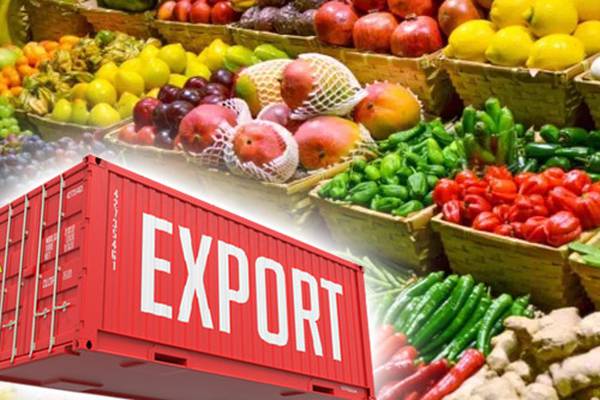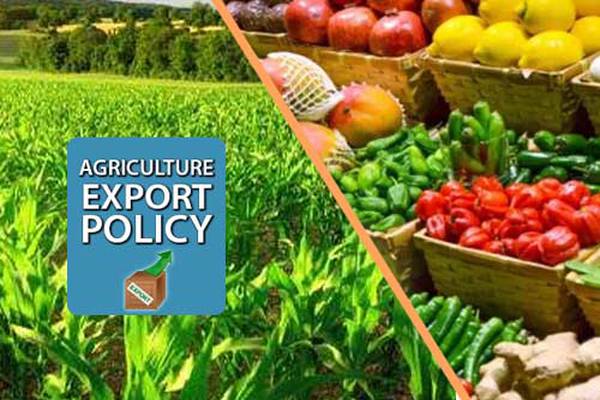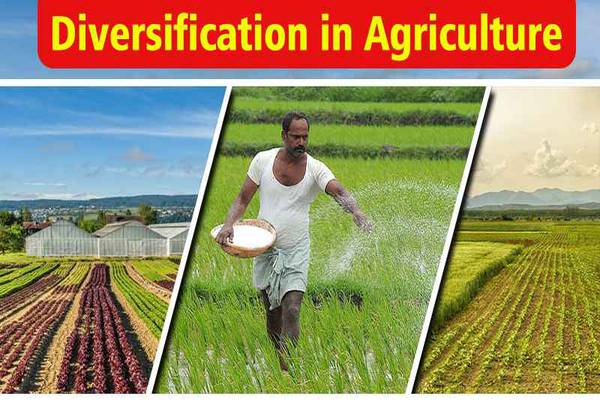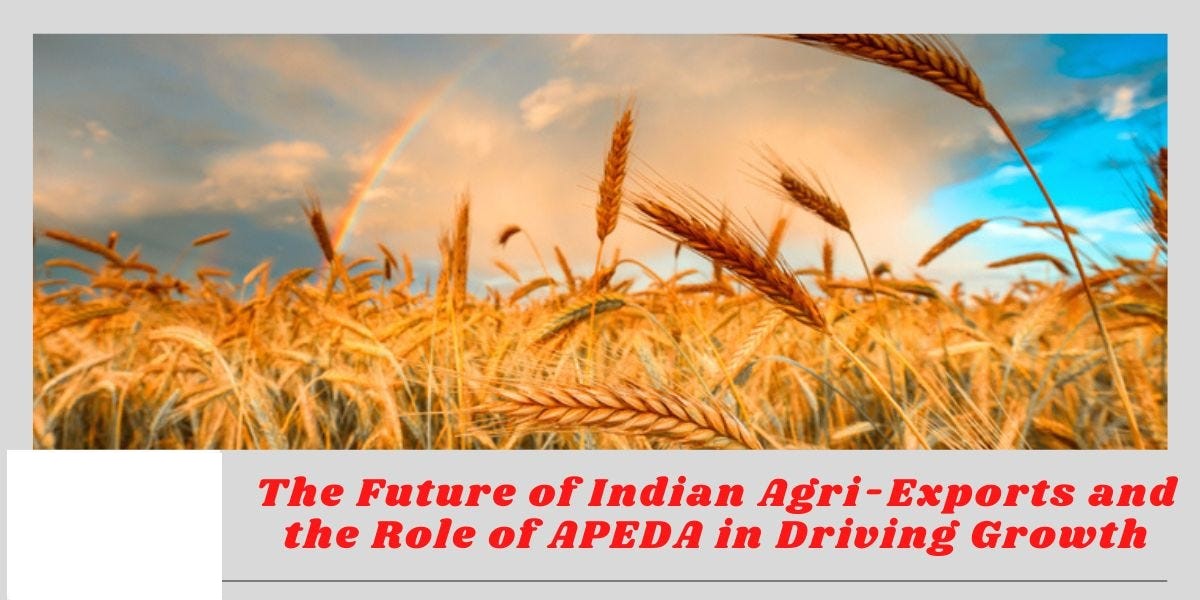How Agricultural Exports Help Farmers: Boosting Prosperity And Sustainability
Drafted by: vijaychourey26@gmail.com
Agricultural exports form the cornerstone of global trade, encompassing the shipment of various products derived from farming activities. These exports go beyond mere commodities; they represent cultures, economies, and the sustenance of nations. From grains and fruits to dairy and meat, the diversity of agricultural exports reflects the richness of our planet's resources.
The Significance Of Agricultural Exports
The significance of agricultural exports transcends economic gains. They contribute to food security, stabilize prices in the domestic market, and generate foreign exchange earnings. Moreover, they foster interdependence among nations, leading to stronger diplomatic ties and peaceful coexistence.
Key Agricultural Export Products:
A plethora of agricultural products grace the global market. Staple grains like rice and wheat, cash crops like coffee and tea, and high-value products like seafood and spices constitute the tapestry of agricultural exports, catering to diverse consumer demands.
The Process of Agricultural Exports:
The journey of an agricultural product from farm to foreign shores is a meticulous process involving cultivation, harvesting, processing, quality control, packaging, logistics, and compliance with international regulations. Each step is essential to ensure that the product reaches its destination in optimal condition.
Agricultural Export's Role in Economic Growth:
Agricultural exports contribute significantly to the GDP of exporting countries. They create employment opportunities, improve rural livelihoods, and drive overall economic growth. This economic boost often extends to related industries, such as transportation and packaging.
Government Policies and International Trade Agreements:
Government policies and trade agreements wield substantial influence over agricultural exports. Tariffs, subsidies, and sanitary regulations can either facilitate or impede trade. International agreements foster cooperation and provide exporters with preferential access to markets.
Environmental and Ethical Considerations:
The sustainability of agricultural practices and ethical considerations are gaining prominence in the realm of exports. Consumers are increasingly conscious of the environmental footprint of their food. Exporters need to align with these values to maintain a competitive edge.
Benefits Of Diversification Through Exports To Farmers
Access to Larger Markets
Agricultural exports provide farmers with access to vast international markets. This diversification reduces reliance on local demand fluctuations, helping stabilize income. When adverse conditions affect one market, farmers can still find buyers in other regions.
Price Stabilization
Diversifying into export markets can shield farmers from the volatility of local prices. International demand often follows different patterns, enabling farmers to secure better prices during off-seasons or when local prices are low.
Income Generation And Rural Development
Increased Revenue Streams
Agricultural exports can substantially increase a farmer's income. Crops that might be in surplus locally can find demand overseas, translating to higher profits and improved livelihoods.
Infrastructural Growth
As export demand grows, rural areas experience infrastructural development. Roads, storage facilities, and processing centers are established, benefitting both farmers and the community.
Knowledge And Technology Transfer & Strengthening Food Security
Learning from International Markets
Engaging in agricultural exports exposes farmers to diverse farming practices. This cross-pollination of knowledge allows the adoption of efficient techniques and the introduction of new crops.
Adoption of Innovative Practices
Export-oriented farming encourages farmers to embrace innovation. To meet international standards, they often invest in modern technologies and sustainable practices that enhance productivity.
Strengthening Food Security:
Balancing Domestic Demand and Supply
Agricultural exports help maintain a balance between domestic food demand and supply. Surpluses can be exported while ensuring that the local population's needs are met.
Reducing Wastage
Export-oriented farming incentivizes better post-harvest management, reducing wastage. This contributes to global food security by utilizing resources more efficiently.
Government Policies And Support & Building Farmer Cooperatives
Subsidies and Incentives
Governments often provide subsidies to encourage agricultural exports. These incentives alleviate financial burdens and motivate more farmers to participate.
Trade Agreements
Bilateral and multilateral trade agreements open doors for agricultural exports. Farmers benefit from reduced tariffs and increased market access.
Building Farmer Cooperatives
Collective Bargaining Power
Farmers often form cooperatives to enhance their bargaining power. This enables them to negotiate better deals with buyers and suppliers.
Shared Resources
Cooperatives facilitate shared resources like machinery and knowledge, lowering individual costs and boosting overall efficiency.
Sustainable Farming Practices & Challenges And Mitigations
Encouraging Eco-Friendly Methods
Many export markets prioritize environmentally friendly products. Farmers adapt by using fewer pesticides, conserving water, and practicing responsible land management.
Preservation of Biodiversity
Growing diverse crops for exports can help preserve biodiversity. Farmers are motivated to cultivate traditional and indigenous varieties, contributing to a healthier ecosystem.
Challenges and Mitigations:
Market Volatility
Global markets can be unpredictable. Farmers can mitigate this risk by diversifying their export destinations and collaborating closely with trade experts.
Quality Control
Maintaining high-quality produce is essential for exporting. Farmers need to adhere to international standards, implementing rigorous quality control measures.
Investment In Research And Development
Crop Improvement
Export-oriented farming necessitates higher-quality produce. Farmers invest in research to develop crops that meet international standards and consumer preferences.
Adaptation to Climate Change
Research efforts also focus on climate-resilient crops. This helps farmers adapt to changing environmental conditions and ensures a consistent export supply.
Case Study: How Export-Oriented Farming Transformed a Village
In the village of GreenHaven, farmers transitioned from subsistence to export-oriented farming. This shift revitalized the local economy, leading to improved education, healthcare, and infrastructure.
The Future Of Agricultural Exports
Technology Integration
Technology will play a crucial role in streamlining export processes. Automated farming, precision agriculture, and digital marketing are set to shape the future.
Eco-conscious Exporting
Consumers are demanding environmentally responsible products. Future agricultural exports will need to adhere to sustainable and ethical practices.








